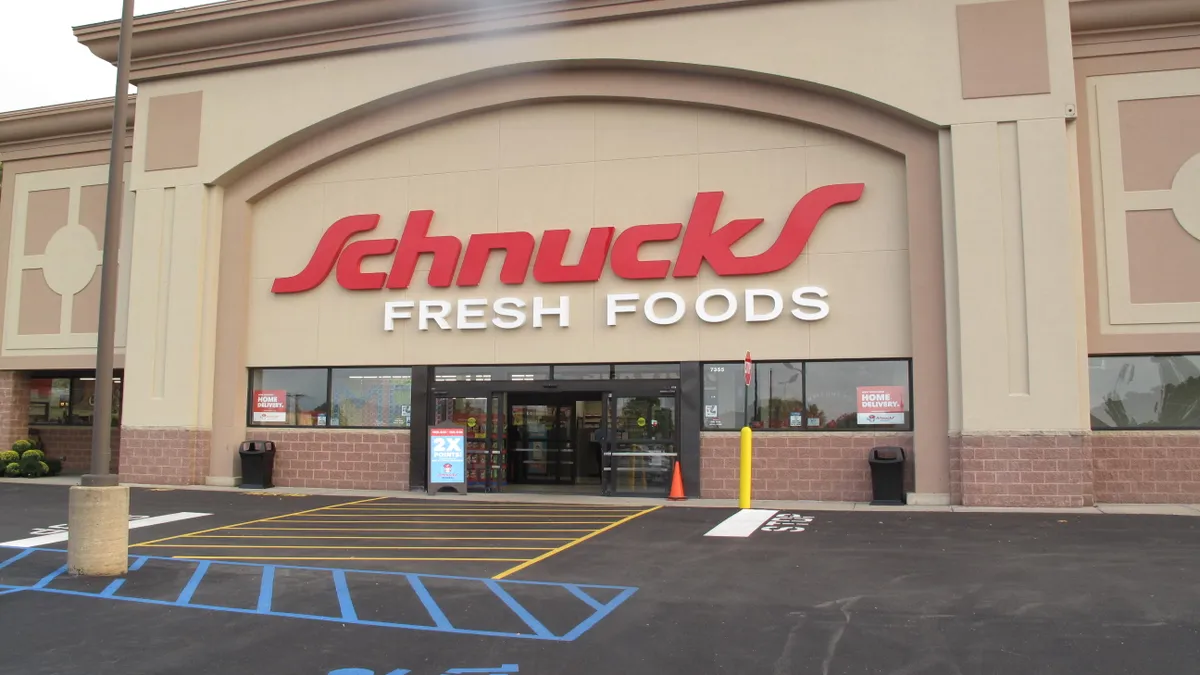Dive Brief:
- Schnuck Markets has started allowing associates at select stores to choose shifts and work locations that fit their personal schedules, the Midwestern retailer announced Friday.
- Workers participating in the program, which went into effect yesterday and is known as “Schnucks Flexforce,” use an app to find and claim open shifts.
- Schnucks is offering added flexibility to employees as supermarket operators compete for workers in a tight job market.
Dive Insight:
With Flexforce, Schnucks is looking to attract and retain workers by letting them have the upper hand in deciding when they want to work. In addition to providing a self-service mechanism for associates to set up their schedules, the Flexforce app can issue notifications when shifts open up, allowing workers to quickly jump on opportunities to select time slots that work for them, according to the announcement.
The concept is comparable to the way rideshare and food delivery companies let workers accept jobs when they are available, Schnucks Chief People Officer Laura Freeman said in a statement.
Schnucks said it will pay workers who elect to participate in Flexforce at least $12.85 per hour and provide them with the same perks and benefits it makes available to other associates. The company also lets workers opt to collect their pay after each shift, a choice that resembles the way other retailers, including Coborn’s and Kroger, let employees receive pay as they earn it.
The retailer said its goal in rolling out Flexforce is to create “opportunities for growth and learning at a pace determined by the teammate.” Schnucks did not specify how many of its stores will take part in the program, which is limited to people who are at least 18.
The St. Louis-based grocer also announced Friday that it plans to hold recruitment events at all of its 112 stores and its bakery facility in Overland, Missouri, on Thursday afternoon.
Schnucks is looking to bring on workers amid a job market that continues to percolate even as the Federal Reserve tries to put the brakes on the economy in an effort to fight inflation.
Grocers and other employers have continued to add jobs at a brisk pace despite the central bank’s aggressive rounds of interest rate hikes, which are meant to make it more difficult for businesses to press ahead with investments and, by extension, drive up prices. Food retailers added 14,600 jobs in August, bringing the number of people on their payrolls to just over 3.2 million, the U.S. Bureau of Labor Statistics reported last month.










